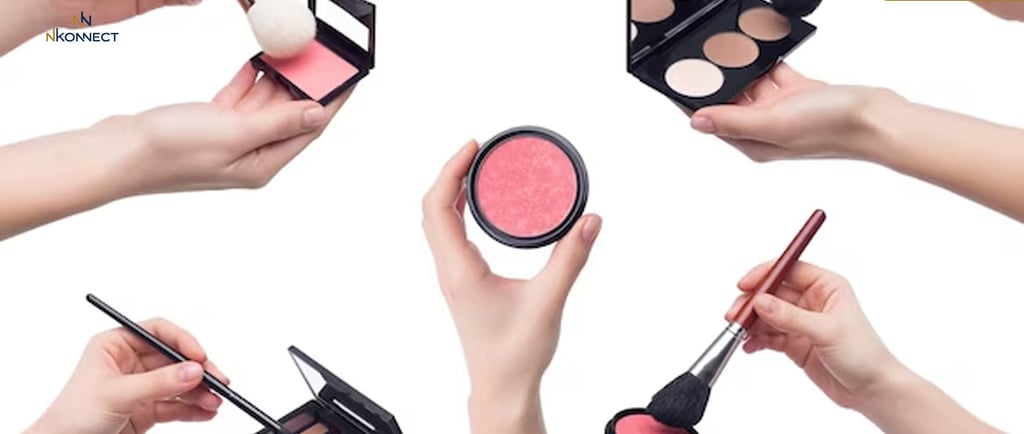Dark Side of the Cosmetics Industry: Deceptive Practices and Their Impact on Women
The cosmetics industry, with its allure of beauty and transformation, often conceals a darker reality marked by deceptive advertising and harmful standards. From airbrushed images to exaggerated claims, cosmetics propaganda has long misled and exploited women, fueling insecurities and perpetuating unrealistic beauty ideals.
COSMETICS


The cosmetics industry, with its allure of beauty and transformation, often conceals a darker reality marked by deceptive advertising and harmful standards. From airbrushed images to exaggerated claims, cosmetics propaganda has long misled and exploited women, fueling insecurities and perpetuating unrealistic beauty ideals.
Deceptive Marketing Tactics: Cosmetics companies frequently resort to deceptive marketing tactics, promoting products with exaggerated claims of flawless skin, anti-aging miracles, and instant transformations. Photoshopped advertisements and celebrity endorsements create an illusion of perfection that is unattainable for most women.
Exploiting Insecurities: By preying on women's insecurities about appearance, the cosmetics industry fosters a culture of inadequacy and self-doubt. Unrealistic beauty standards set unattainable benchmarks, leading to feelings of dissatisfaction and low self-esteem among consumers.
Health Risks and Hidden Ingredients: Many cosmetics contain harmful ingredients such as parabens, phthalates, and sulfates, which pose health risks ranging from skin irritation to hormonal disruptions. Despite claims of safety, the industry often prioritizes profit over consumer well-being, neglecting to disclose potential risks associated with their products.
Environmental Impact: The cosmetics industry's reliance on plastic packaging, excessive waste, and unsustainable practices contribute significantly to environmental degradation. From plastic microbeads polluting oceans to carbon emissions from production and transportation, the environmental footprint of cosmetics is substantial.
Empowerment Through Awareness: To combat the negative effects of cosmetics propaganda, women must empower themselves through awareness and education. Questioning unrealistic beauty standards, demanding transparency from brands, and prioritizing natural and sustainable alternatives can foster positive change.
Regulatory Reforms and Ethical Standards: Governments and regulatory bodies must enforce stricter regulations on cosmetics advertising, ensuring truthfulness and accuracy in marketing claims. Ethical standards should prioritize consumer safety, environmental sustainability, and honest representation in the cosmetics industry.
Embracing Diversity and Authenticity: Celebrating diversity in beauty and embracing authenticity are crucial steps toward challenging the harmful effects of cosmetics propaganda. By promoting inclusivity, representing diverse beauty ideals, and encouraging self-acceptance, the industry can foster a healthier and more empowering narrative.
In conclusion, the negative effects of cosmetics propaganda on women's perceptions of beauty and self-worth are significant and pervasive. By advocating for transparency, ethical standards, and empowerment, women can reclaim agency over their beauty choices and challenge harmful industry practices.
